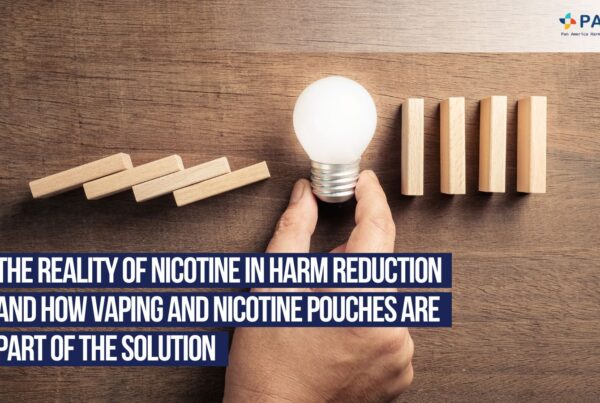In 2022, a Doctor’s Survey conducted by Sermo and the Foundation for a Smoke-Free World interviewed 15,335 physicians across 11 countries – including the United States of America – to better understand “doctors’ perceptions of nicotine and reduced-risk products, and their interactions with adult patients on the issue of smoking, quitting and tobacco harm reduction tools.” The results of this recently released survey highlight various smoking myths and misconceptions that still exist among physicians, particularly when referring to nicotine and its capacity to harm.
While a global average of 77% of surveyed physicians incorrectly believed that nicotine “by itself directly causes” lung cancer, a national average of 67% of physicians across the United States also believed the same. Despite being the third-lowest average amongst the countries surveyed, this high percentage glaringly highlights gaps and inaccuracies in doctors’ knowledge on smoking as nicotine in and of itself does not cause lung cancer. Similar incorrect beliefs were also held and shared by American physicians regarding nicotine “by itself directly” causing other smoking-related conditions, such as COPD (66%).
Despite this misinformation, the survey also shared how 85% of American physicians have had some training on smoking cessation and another 81% would be interested in further training. Additionally, 95% of physicians in the USA reported that they “proactively discuss smoking with their patients who smoke at least sometimes” and 93% consider it a priority to help their patients quit. It is further promising that 81% of American physicians recommend over-the-counter nicotine replacement therapy and prescription medication for smoking cessation – methods identified as “most effective and least concerning”.
While acknowledging America’s strengths in training and discussing smoking reduction and cessation, it seems that a necessary next step is to create awareness and training opportunities surrounding the health effects of nicotine – and its direct and indirect connection, or lack thereof, to various smoking-related diseases. Such action will hopefully decrease the number of physicians holding misconceptions about nicotine while increasing the number of those who are adequately trained in reducing and stopping smoking.
Read more on the benefits of nicotine and common misconceptions.
Tags
Popular Posts
Quick Links
Related Posts
 Paradigm Shift Needed In Pan America’s Approach to End Smoking
Paradigm Shift Needed In Pan America’s Approach to End Smoking
Paradigm Shift Needed In Pan America’s Approach to End Smoking
 Tobacco Harm Reduction Seminar in Brazil
Tobacco Harm Reduction Seminar in Brazil
Tobacco Harm Reduction Seminar in Brazil
 Systematic Review of Vaping Flavours | Dr. Konstantinos Farsalinos
Systematic Review of Vaping Flavours | Dr. Konstantinos Farsalinos





